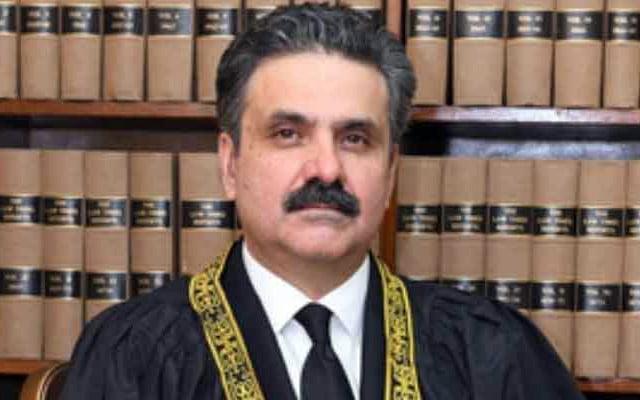The chief judge of Pakistan Yahya Afridi expressed his support for the transfer of judges from other high lessons to the High Court of Islamabad, calling it a positive and necessary step.
In a conversation with journalists from the swearing -taking ceremony of the Press Association of the Supreme Court, Afridi addressed the question of the transfer of judges, stressing its importance for national unity, Express News reported.
He explained that Islamabad, being the symbol of the federal government, should have a balanced representation of all the linguistic communities of Pakistan.
Afridi said: “Islamabad is not only a marble building; it represents the federal entities of Pakistan. This transfer is in accordance with the ideals of equality and representation.” He refer to the fact that judges of various linguistic horizons, such as Balochi, Punjabi and Sindhi language judges, were appointed to the High Court of Islamabad, promoting the unity of the nation.
The chief judge added that by virtue of the law of the High Court of Islamabad, the court is mandated to represent all the federal units fairly, and this decision is aligned with the constitutional framework presented in article 200. He encouraged other positive stages in this regard, welcoming the decision to transfer three judges to Islamabad.
While approaching the question of seniority, Afridi assured that the case would be adjusted appropriately within the framework of the Court. He stressed that it was important to separate the problems from transfers and seniority and to avoid premature conclusions.
Discussing the judicial reforms, Afridi also mentioned that he had approved a study tour for the judges in South Africa, where three judges of the Supreme Court and five judges of the High Court would participate. He stressed the importance of judicial training and improving the judicial system across Pakistan, noting that there are currently 692 officers of justice in the country.
Afridi has revealed his commitment to involve judicial associations in future training and reform initiatives, in particular the initiatives of the Federal Academy for the Training of Lawyers in Malakand.
The chief judge also discussed the current efforts to fill the vacancies before the Supreme Court. He pointed out that additional judges were necessary to manage the workload, especially during the judicial sessions responsible when the judges face significant pressures due to vacation.
In addition, Afrida stressed that the next meeting of the National Committee on Judicial Policy would focus on policies related to the district courts during the hours and evenings, and he urged new consultations with selected law professionals.
As for the questions of the missing persons, Afridi reaffirmed his commitment to resolve the issue, declaring that the reforms would not continue behind closed doors but by collaboration and consultations.
He also added that communication around judicial affairs would be transparent and that the questions related to the correspondence between the judges would soon be resolved.
The chief judge also expressed his desire to meet judges across Pakistan, declaring that he would engage in occasional conversations and would respond to any concern.




